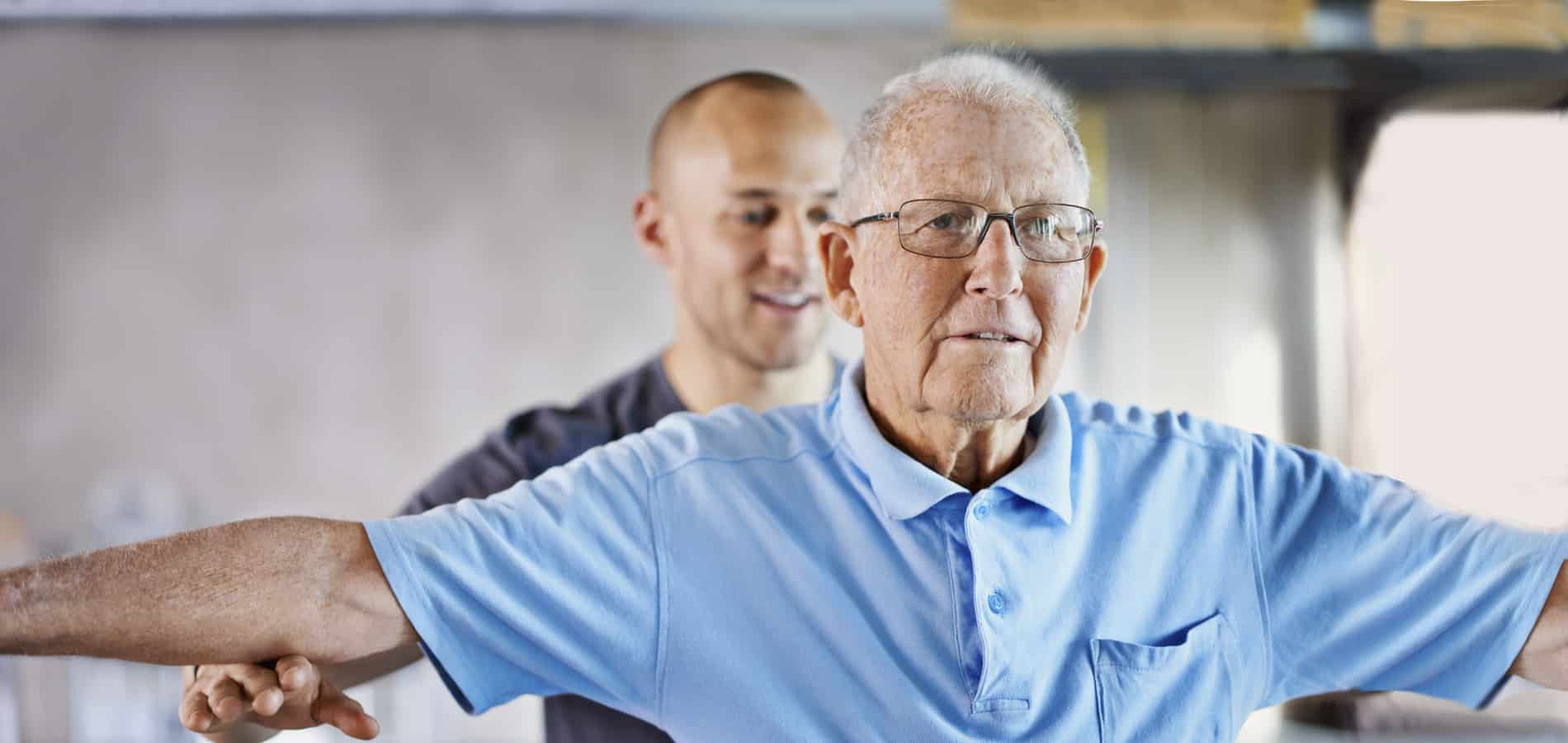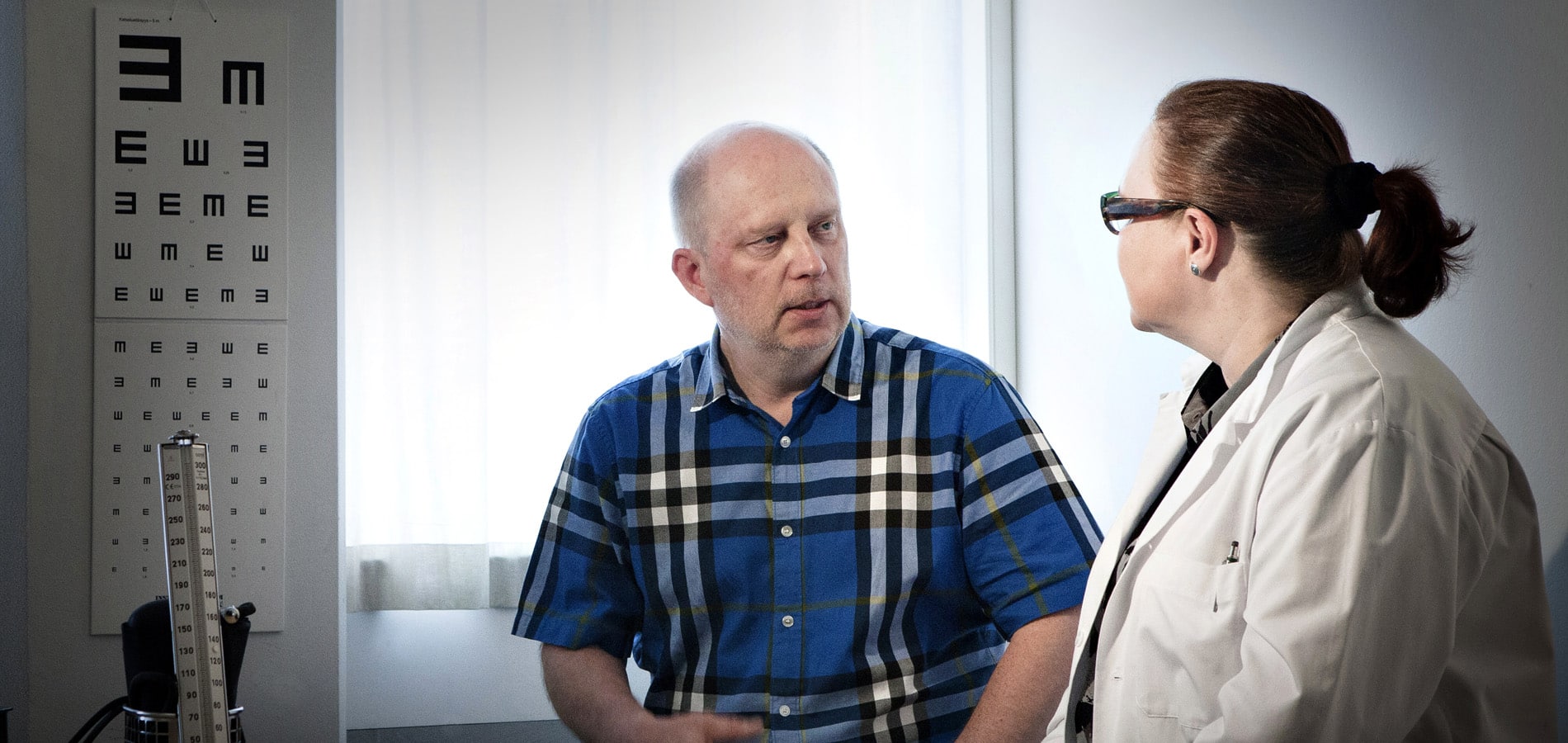
Rehabilitation in Public sector
You can get rehabilitation from the public healthcare side if your illness and its treatments have affected your ability to work and function and survive in everyday life.
Medical rehabilitation options
Neuropsychological rehabilitation is needed when you have a brain function disorder due to a brain tumour. Rehabilitation focuses on speech and perception comprehension, and support for speaking, attention and memory.
Speech therapy is for dealing with speech and voice disorders resulting from cancer. Speech and voice production problems can arise from a brain tumour, laryngeal cancer and oral cancer.
Physiotherapy includes exercise therapy, massage and various physical therapies.
Occupational therapy helps you cope with everyday life and with important things in your daily activities.
Lymphatic drainage
Lymphatic drainage can be used to treat swelling in the arms, armpit and chest. (lymphoedema). Such swelling and soreness are common symptoms following breast cancer surgery and radiotherapy. Swelling in the arms can easily turn to infection.
Lymphatic drainage is a therapy to revitalise the pumping mechanism of the lymph system. It helps strengthen the generation of new lymph vessels between the swollen area and the healthy part of the body.
A swollen hand can be rehabilitated with physiotherapy in addition to lymph drainage, as well as with exercises and if necessary using a sling or some other assistive means.
Lymphatic drainage is a form of medical rehabilitation.
Psychological support
Being seriously ill or facing a recurrence of illness can lead to a psychological crisis. The usual psychological symptoms people with cancer experience are anxiety and depression. Many patients get through such difficult periods with the support of their loved ones and the medical staff treating them.
If psychological problems persist for a long time, are severe or restrict your life, you should discuss the matter with the medical staff treating you.
Psychological support is provided by:
- The hospital where you receive treatment in conjunction with its psychological support unit or psychiatric outpatients clinic
- Your health centre or municipal mental health care services
- Occupational health care
- Municipal crisis and support services, such as a helpline
- The Cancer Society of Finland’s national advice service
- Crisis and support services provided by other organisations, such as the Finnish Association for Mental Health
Assistive devices
You may need to use assistive devices during and following treatment. The use of assistive devices is a type of medical rehabilitation. To obtain an assistive device, you will need a written statement from a doctor or other health care professional. Physiotherapists often provide guidance on using assistive devices.
Wigs
When you have cancer you may find that you lose your hair as a result of treatment. When that happens, you may want to use a wig. You can select a wig according to how you want to use it and your needs. You can find out more about this from your regional cancer association or from the health care staff treating you.
Getting assistive devices
The assistive devices that cancer patients most commonly need are wigs and breast shapes (prostheses). The hospital treating you will provide a payment order for procuring an assistive device. Practices may vary in different hospital districts.
Regional cancer associations, hospitals and businesses operating in this sector provide advice on the use of breast forms and choosing the right sort. Instructions are also given for using prosthetic arms and prosthetic legs.
You might also be interested

Follow-up care
After treatment, you will be followed up. Cancer patients are followed up at regular intervals. Follow-up varies depending on the type of cancer and how far the cancer has spread. You may receive follow-up care for some time after treatment in a specialist hospital and then transfer to primary care.
Read article
Back to work after cancer
A long absence from work may require support, flexibility and rehabilitation. The best results come from cooperation between the employer, employee and occupational health service.
Read article
Advice Services
You can chat with a specialist cancer nurse – or call or send a message. The counseling service of cancer organizations is intended for you who are affected by cancer.
Read article